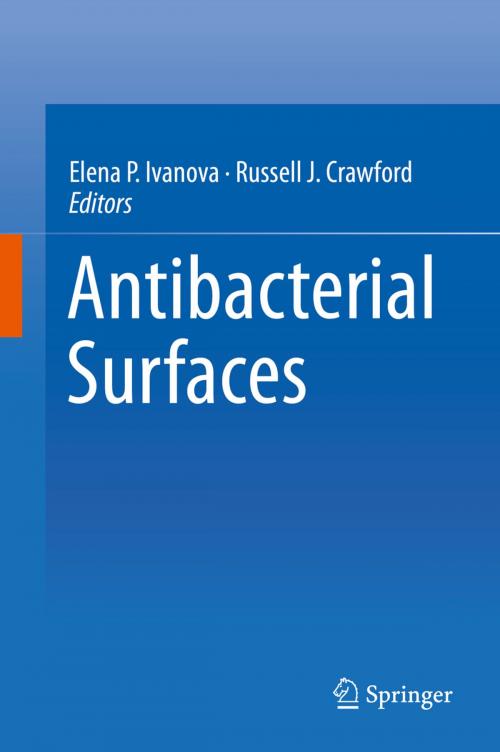Antibacterial Surfaces
Nonfiction, Science & Nature, Science, Other Sciences, Molecular Biology, Biological Sciences, Biochemistry, Health & Well Being, Medical| Author: | ISBN: | 9783319185941 | |
| Publisher: | Springer International Publishing | Publication: | November 9, 2015 |
| Imprint: | Springer | Language: | English |
| Author: | |
| ISBN: | 9783319185941 |
| Publisher: | Springer International Publishing |
| Publication: | November 9, 2015 |
| Imprint: | Springer |
| Language: | English |
‘Antibacterial Surfaces’ covers the advances being made in the design of antibacterial surfaces, which have the ability to either prevent the initial attachment of bacterial cells, or kill any cells that come into contact with these surfaces.
This book discusses the mechanisms associated with the attachment of bacteria to surfaces and the main strategies currently being employed to control the initial attachment processes. These strategies are expanded upon in the subsequent chapters, where the definition and description of antibacterial surfaces are clarified, as are the mechanisms that come into play when determining the effectiveness of an antibacterial surface.
Subsequent chapters discuss a number of naturally occurring antibacterial surfaces, the methods currently being used for producing synthetic antibacterial surfaces, and the current and potential applications of such materials.
This book will be of great interest to people who work with materials that need to remain free of bacterial films, from designing safer biomedical implants to the production of self-cleaning materials where the prevention of biofilm formation has significant economic advantages.
‘Antibacterial Surfaces’ covers the advances being made in the design of antibacterial surfaces, which have the ability to either prevent the initial attachment of bacterial cells, or kill any cells that come into contact with these surfaces.
This book discusses the mechanisms associated with the attachment of bacteria to surfaces and the main strategies currently being employed to control the initial attachment processes. These strategies are expanded upon in the subsequent chapters, where the definition and description of antibacterial surfaces are clarified, as are the mechanisms that come into play when determining the effectiveness of an antibacterial surface.
Subsequent chapters discuss a number of naturally occurring antibacterial surfaces, the methods currently being used for producing synthetic antibacterial surfaces, and the current and potential applications of such materials.
This book will be of great interest to people who work with materials that need to remain free of bacterial films, from designing safer biomedical implants to the production of self-cleaning materials where the prevention of biofilm formation has significant economic advantages.















